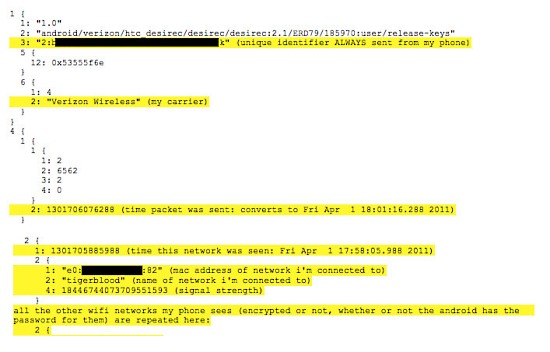CNET's investigation revealed what information Android phones send to Google, and why it cannot be considered anonymous

Recently, the problem of collecting personal information of users of mobile devices has become quite relevant - the discussion of this issue is carried out on the pages of most "technical" online media. Habr is no exception, where there are already two interesting articles about Apple devices and Android- based phones . In addition, quite a lot of independent experts deal with the problem, and what is interesting is that each of them has their own opinion on what this collection of information for a particular user is fraught with.
Some argue that such “spies” are just a glitch in the software of a mobile device, which can and will be fixed by a patch. Others believe that all this is a deliberate collection of information, which is necessary for something for companies involved in this business. In principle, one can argue endlessly here, and the other day there was information from another expert hired by CNET.
')
So, after a series of studies, it turned out that Android phones “merge” information into Google.com, and the company receives a small data dump containing information about the user's current time, current location, Wi-Fi networks that are available for user, and a device identifier that is unique to each mobile device.
Samy Kamkar, a specialist who conducted his own investigation for CNET, believes that the data obtained by Google are not generally tied to a specific user, but it is not so difficult to determine who owns a particular device, either by ID or by coordinates. Plus, data is collected by the mobile device all the time, regardless of whether any applications are running or not.

Google representatives argue that all the data received by the company (and the corporation on April 22 recognized that the data is still collected), are anonymous, and are not tied to a specific person. In general, it is rather difficult to assess the degree of threat to the user's personal information, but there is no doubt that there is a threat.
Some experts believe that all the words that the data is not tied to the user is an empty sound, since it is very easy to determine the user's location by coordinates, and to understand who owns the phone. For example, if a person constantly, for example, spends evening, night and morning in one place, and during the day he is regularly in another particular place, it is easy to calculate that the first place is his home, the second is work.
Perhaps this problem is not so serious as it may seem, but the main question remains the question of why manufacturers do not warn users that the information collected is still not entirely anonymous? Yes, in Android there is a warning that the information without binding to the user is collected and sent to Google, but what kind of information it is and why it is considered “anonymous” - in this regard, the user receives very little data.
Via CNET
Source: https://habr.com/ru/post/118017/
All Articles